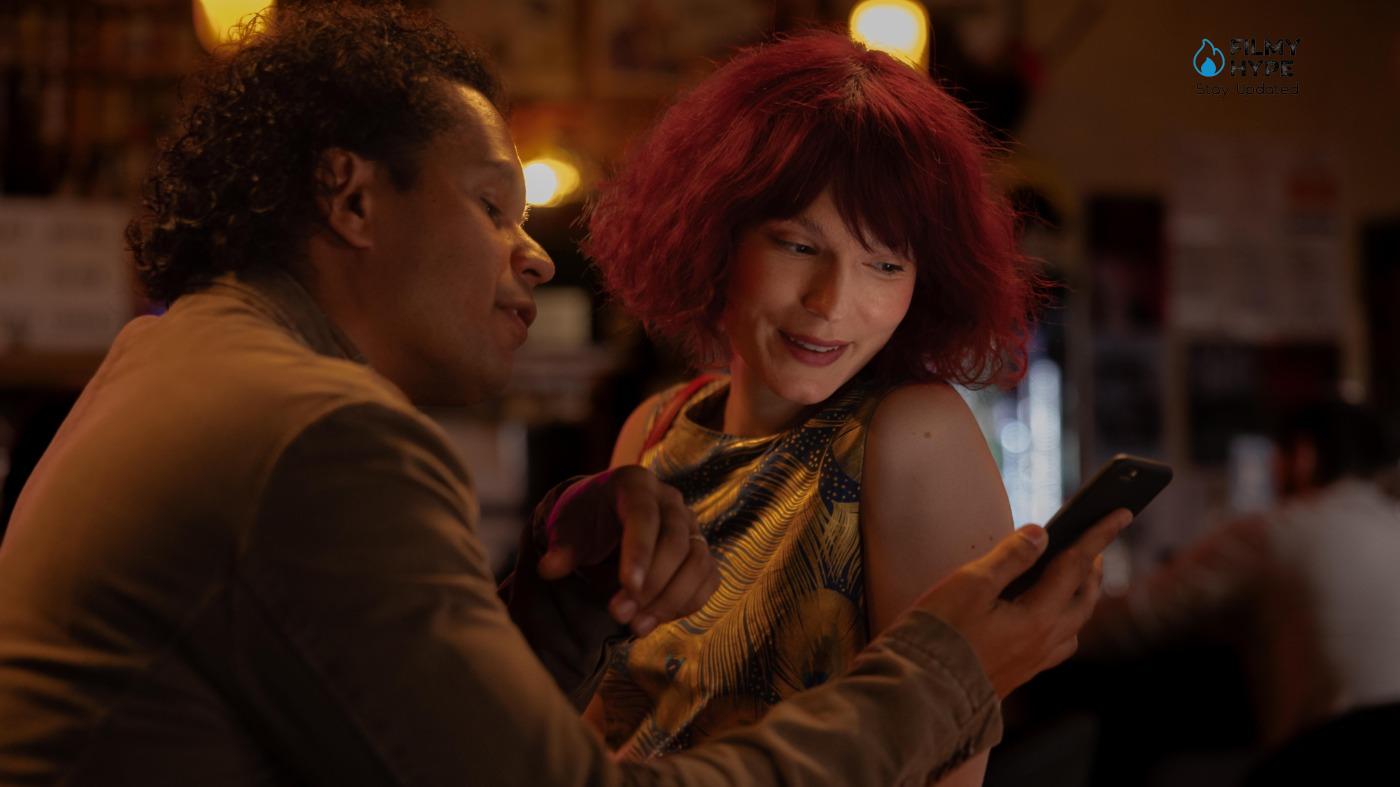Apple Cider Vinegar Series Review: Netflix’s Miniseries That Tells the Incredible Rise and Fall of Belle Gibson?
Apple Cider Vinegar is a Netflix miniseries freely inspired by the book The Woman Who Fooled the World, written by journalists Beau Donelly and Nick Toscano and published by Scribe on November 13, 2017. The work tells the case of Belle Gibson, founder of The Whole Pantry app and author of a book that mixes her history with cooking recipes. However, Gibson is not known as a successful entrepreneur. Still, as one of Australia’s most famous scammers: he has built his public image on a network of lies, attracting a large following of people, many of whom are suffering from serious diseases, ready to trust his advice. Gibson has repeatedly stated that she is ill with brain cancer, only to claim that she has tumors spread throughout the body, claiming to be treated exclusively with alternative medicine methods. In addition to disseminating misleading information, she was accused of fraud for retaining the sums collected in the name of charitable donations. On March 15, 2017, she was sentenced by federal judge Debra Mortimer for misleading statements, and in September of the same year, she received a fine of $410,000.
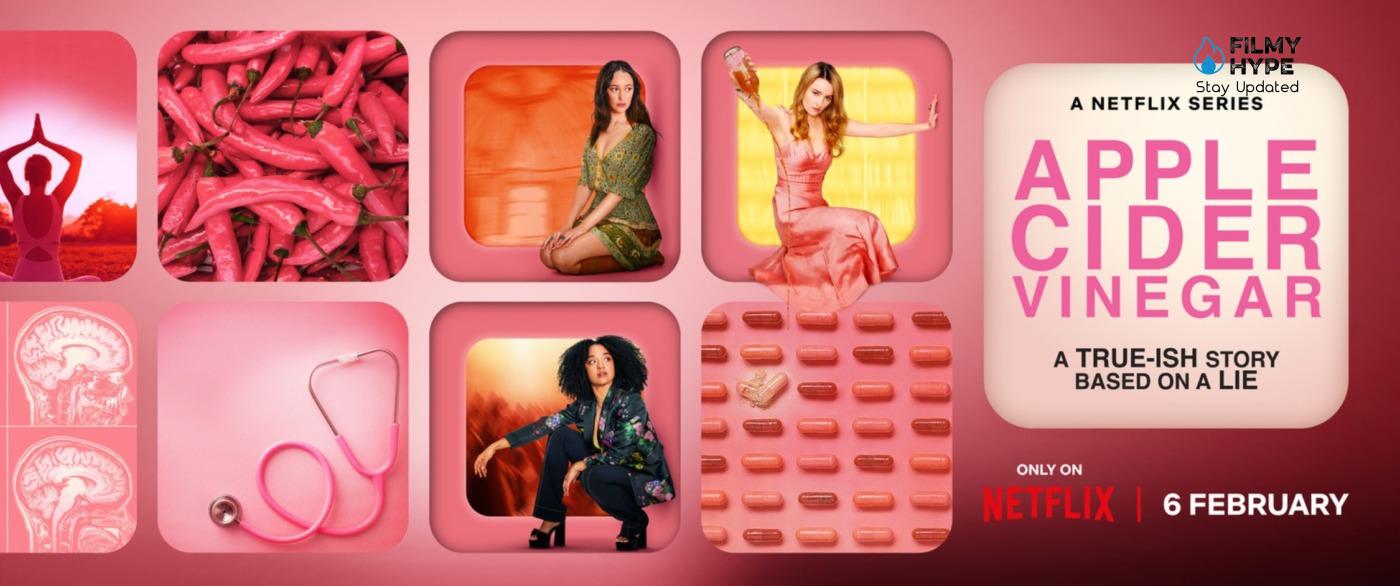
Netflix has transformed this story into a six-episode miniseries of one hour each, created by the award-winning Australian screenwriter Samantha Strauss (Nine Perfect Strangers, The End, Dance Academy). The cast includes Kaitlyn Dever (Dopesick, Unbelievable), Alycia Debnam-Carey (The Lost Flowers of Alice Hart, Fear the Walking Dead, It’s What’s Inside) is Tilda Cobham-Hervey. The series debuted on Netflix on February 6, 2025. The second decade of the 2000s marked a golden age for social media, in particular for a famous app born as a platform to showcase its photographic talent. In those days a simple shot of a cup of lemon tea or a plate of vegetables could generate thousands of likes, and it was in that period that the figure of Belle Gibson emerged, an Australian influencer who built an empire on the alleged recovery from cancer thanks to a natural diet and a healthy lifestyle. Too bad it was all false: Belle had never had cancer and her healing promises were just an elaborate deception. Netflix brings this incredible story to the screen with the miniseries Apple Cider Vinegar, a product that, between drama and social criticism (starting from premises very similar to successes such as Inventing Anna), reconstructs the rise and fall of one of the most famous scammers in the digital world.
Apple Cider Vinegar Series: Story Plot
Australia, 2010-2015. With the birth of the first social networks, from blogs to forums to the explosion of Facebook and especially Instagram, the first influences emerged: individuals who build their success by sharing their lives and orienting, in one way or another, the choices of their followers. The real problem lies precisely in this phenomenon: the excessive importance that followers attach to these characters, coming to consider them close friends (albeit in an illusory and virtual way) and, even more dangerously, modifying themselves to imitate them, adopting their personality and style of life. However, an influencer remains, after all, an ordinary person, subject to the same mistakes as anyone else. Milla Blake is a young woman who is diagnosed with epithelioid arm sarcoma. Doctors recommend amputation to stop the advance of the tumor, but she refuses, choosing to rely on alternative treatments to avoid such a drastic decision. She then begins to follow Gerson’s therapy, and a diet based on smoothies and organic foods, convinced that she can defeat cancer without resorting to traditional medicine. Noting an improvement in his condition, he begins to share his online experience: first through a blog, then on social media, and finally with a book. She soon became a real influencer, an icon of alternative medicine, and a fierce opponent of conventional medicine, which she considered harmful and poisoning.
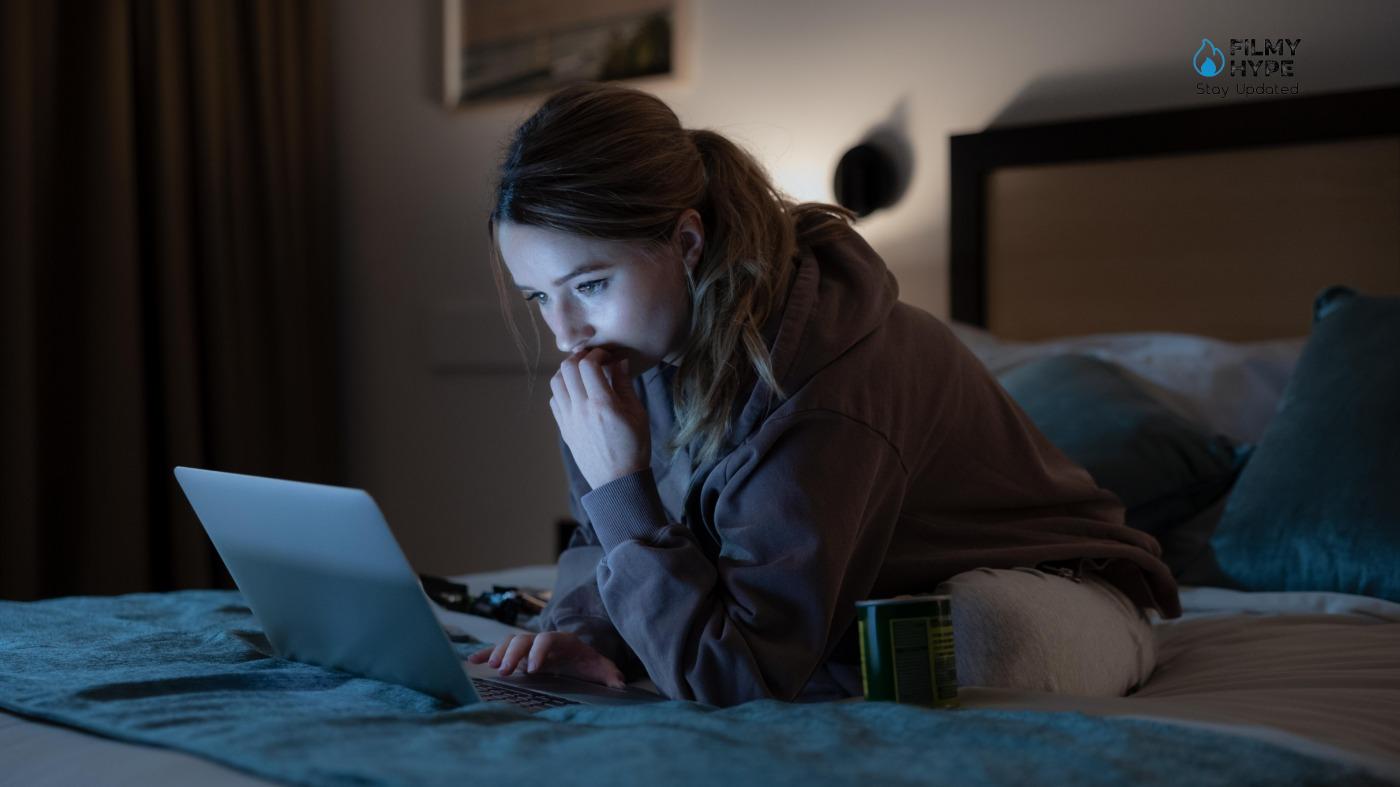
Among the people who follow her with admiration is Bella Gibson, who develops an obsession with Milla and draws inspiration from it to build her career. Bella also decides to become an influencer and an entrepreneur, spreading a clear message: a healthy lifestyle, based exclusively on natural and ecological nutrition, is the only way to heal cancer or, at least, to make it stable. To strengthen her credibility, Bella claims to be suffering from a brain tumor, claiming that her diet has helped her make the disease regress. All of this would be incredibly stimulating if only it were true. As we have learned since, on social media it is often impossible to distinguish reality from fiction, even when it comes to sensitive topics such as health. It is something that Lucy, a young woman who is diagnosed with cancer and who, in the hope of healing, decides to follow Bella Gibson’s method, which she sees as a model to emulate. Despite her husband’s concerns, Lucy denies traditional medicine to embrace alternative treatments, entrusting her destiny to a narrative that could prove tragically deceptive.
Apple Cider Vinegar Series Review and Analysis
Apple Cider Vinegar is a surprisingly well-thought-out and structured miniseries, which does not just tell the life of the entrepreneur Bella Gibson but takes a step forward to create a layered audiovisual work, full of subplots and themes of great relevance in contemporary society. Samantha Strauss could have opted for a linear narrative, simply following Gibson’s rise and fall as a prominent influencer. Instead, he chooses a more complex dramaturgy, which develops on multiple temporal and narrative levels. The series does not revolve around a single protagonist, nor is it limited to two or three central characters: on the contrary, it is configured as choral work, which finds its strength in the multiplicity of voices. This chorus allows the narration to explore numerous themes and paths, always bringing them back to the heart of the story: Bella Gibson. Gibson is the pivot around which all the stories revolve and is dotted in a deeply three-dimensional way. The series manages to restore its psychological and mental complexity, arousing contrasting emotions in the public. On the one hand, his actions disturb and disturb (emblematic of the funeral scene), on the other, through the fragments of his family history – how the relationship with his mother – his most intimate frailties emerge.
Even without indulging in excessive justifications, the narration reveals a woman marked by loneliness and a desperate need for love and acceptance. Bella Gibson is a character who builds herself through lies: to be loved, and to feel accepted, she wears masks made of deception, and only through deception is she able to be loved. Yet precisely this fiction makes her dramatically human, because behind the facade lies a fragile girl, unable to make herself loved for what she is. The risk of such a character is to generate only repulsion, but the script manages to restore all the ambiguity of his figure: the empathy he arouses is fragile and unstable, just like his deception, and can quickly turn into disillusionment and anger. So the miniseries Apple Cider Vinegar outlines Bella Gibson not as an executioner, but rather as a victim — not in a legal but psychological sense. Retracing some key moments of his life, the series seems to almost absolve it of his actions, instead highlighting his mental frailties and psychological disorders. His behaviors appear as manifestations of a pathological condition, which could include Münchhausen Syndrome, but not only.
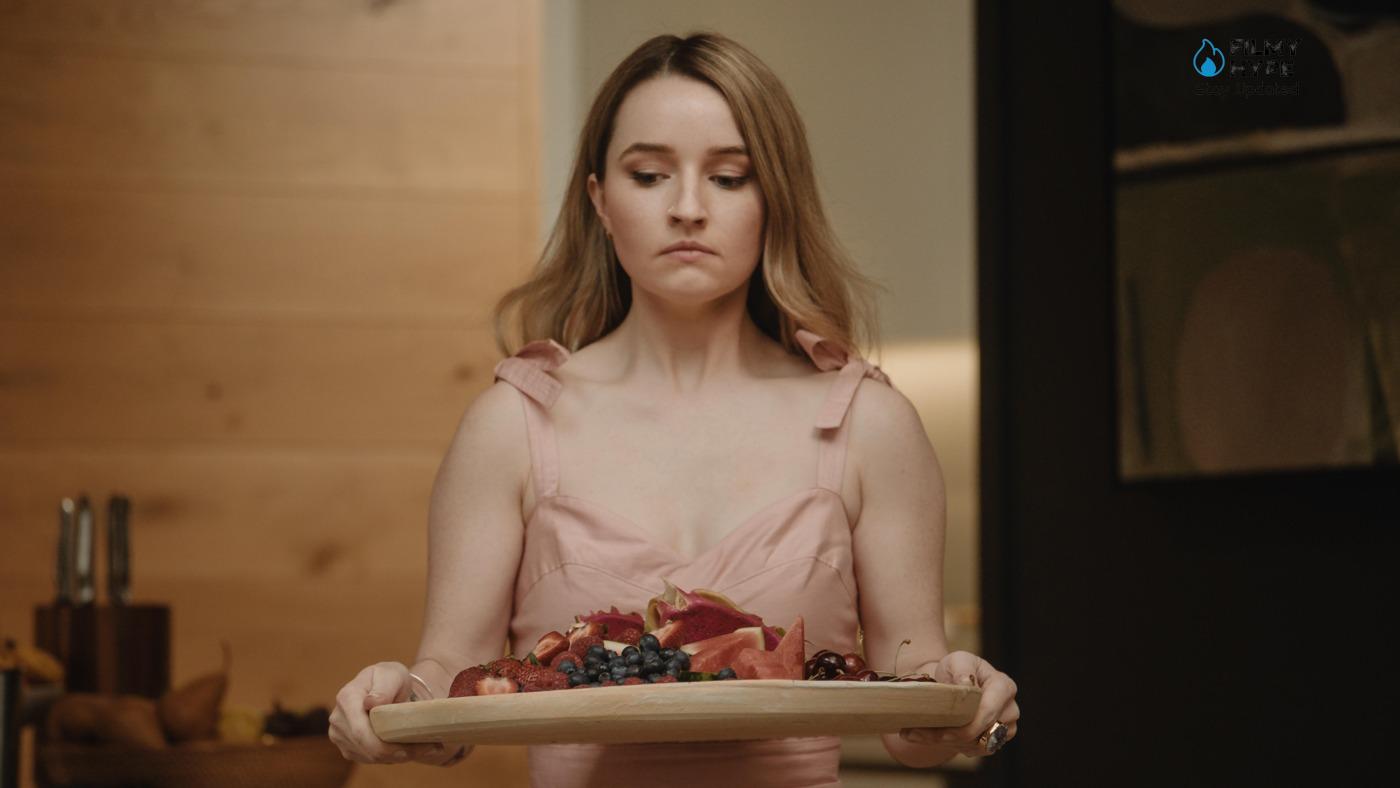
The girl who emerges from this narrative — which differs from the truthfulness of the facts, as the series itself points out several times — is not a fully lucid person, but a young woman in her twenties marked by serious personality disorders and deep mental instability, as can be seen, for example, from the scenes in which she takes care of her son. To strengthen this interpretation, Samantha Strauss inserts a particularly significant scene, which in part exonerates (but not entirely) Bella from the accusations of having deliberately lied about her health. If for most of the series, we see her telling lies with extreme naturalness — like when she declares on a forum that she has a brain tumor with tac next to it that says otherwise — there is a moment that casts a shadow of doubt on his intentions. In this scene, Bella goes to a doctor in a decidedly unconventional context. The man declares that she is ill and diagnoses (more or less) a liver tumor and gives her an experimental electronic machine to cure herself, a device (costing $ 10,000) that does not fall under the protocols of traditional medicine. This moment breaks, in some ways, the dialectic built up to that point by the series, insinuating the suspicion that Bella can believe she is sick.
His lies, therefore, may not be real lies, but the result of a deep self-deception. This narrative ambiguity adds a level of complexity to the character: Is Bella a conscious swindler or a victim of her illusions? The series does not provide a definitive answer, letting the viewer question the subtle line between deception and self-deception. Alongside the history of psychological fragility and mental disorders, the miniseries develop a thematic investigation into highly topical issues: the role of influencers in contemporary society and how they are perceived by the public. This is accompanied by a reflection on the dangerous spread of gurus of alternative and holistic medicine, which offer the sick an illusory hope of recovery. If doctors often have to communicate truths that are difficult to accept, these gurus promise miracles, claiming that exclusively natural practices can defeat the disease without the need for traditional medicine.
As Bella Gibson’s story moves away, at least in part, from the theme of the disease to focus on the dynamic between influencer and audience and lie, the characters of Lucy and Milla embody the darker side of the health guru phenomenon. Both are, to varying degrees, manipulated by the illusion that cancer can be defeated without drugs, seen as harmful to the human body (which, in part, is true — but not in the way these movements support). The stories of Lucy and Milla — the latter inspired by the real story of Jessica Ainscough — intersect both with the world of the guru and with that of social media but from opposite perspectives. Lucy, in desperation, renounces medical treatment to blindly follow Bella, while Milla takes a different path: as a patient he becomes an influencer and a sort of spiritual guide, convincing thousands of people to treat themselves with holistic methods rather than relying on traditional medicine. In the end, however, Bella’s story demonstrates the importance of medical science: traditional medicine can save lives, while the so-called “medicine” based on nutrition and natural remedies proves ineffective, if not downright harmful.
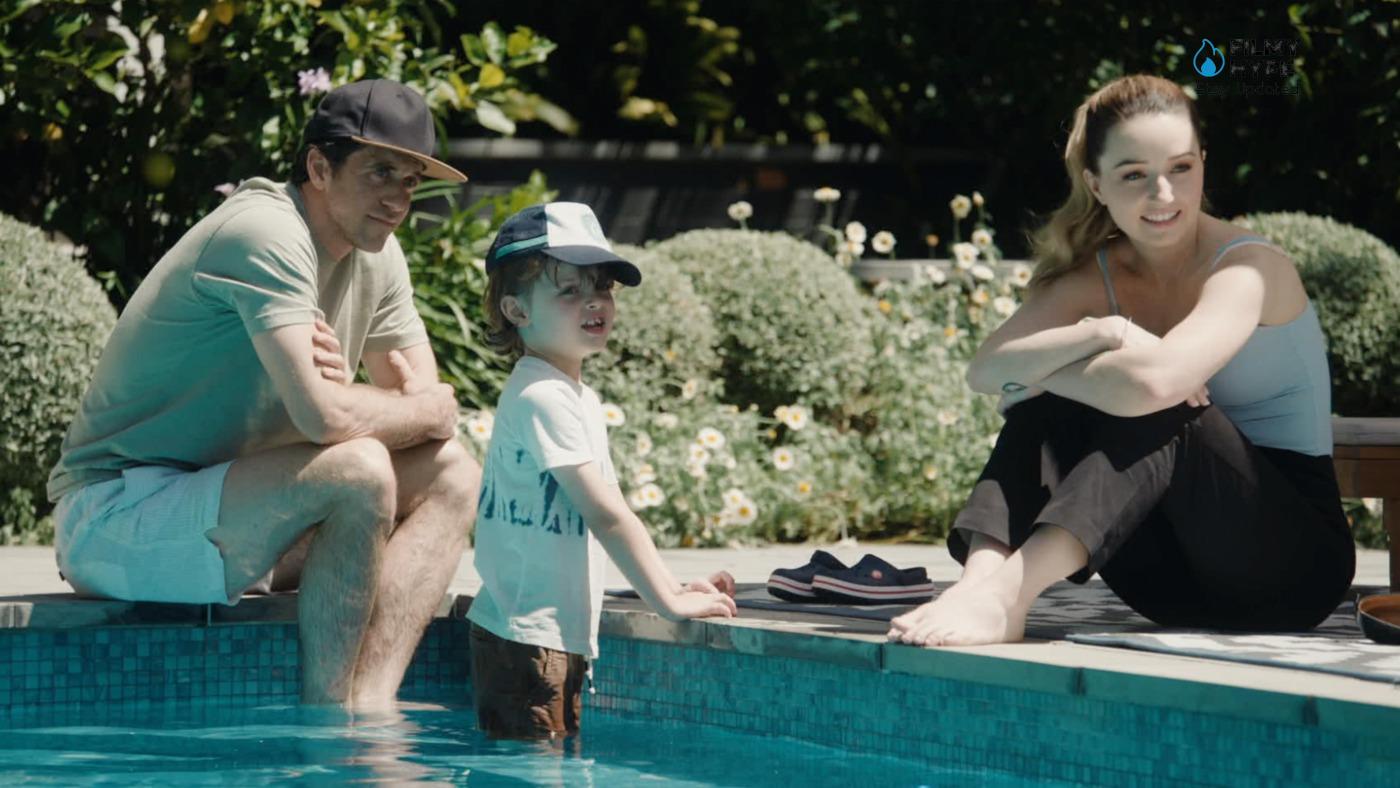
Apple Cider Vinegar sends a clear warning to the spectators of the twenty-first century, increasingly suspicious of official medicine and inclined to seek alternative solutions: we must reflect carefully before relying on gurus with miraculous proclamations. The theme of the scam is central to the series, both in the world of social media and in that of alternative medicine gurus. Apple Cider Vinegar shows clearly how, in the digital age, it is increasingly difficult to distinguish truth from lies: we can never know for sure who we are facing, nor blindly trust what we are told without concrete evidence. Beautiful mind shamelessly, yet his followers believe every word, just as it happens to patients of holistic gurus, willing to spend exorbitant amounts in exchange for an illusory hope for recovery. The series highlights a disturbing aspect of this phenomenon: behind many of these charismatic figures lies a real market of despair, in which the pain and vulnerability of people become instruments of profit. Often, these self-styled experts do not offer real solutions, but only illusions at a high price.
The world of Instagram and social networks is not only a narrative element of the series but deeply permeates its visual and stylistic construction. The entire directorial system recalls the language of the digital world, starting from a frenetic and fragmented montage, which quickly alternates shots, and time jumps between one story and another. This use of alternate editing gives the narration a dynamism that reflects the speed and volatility of social content. The soundtrack also contributes to reinforcing this “pop” aesthetic, with songs that mark the pressing rhythm of the story and keep the viewer’s attention high. A particularly interesting directorial choice is the breaking of the fourth wall, introduced at the beginning of each episode, in which it is repeatedly reiterated that it is a true story … but not entirely. This gimmick perfectly underlines the central theme of the series: the nuanced boundary between truth and fiction, both in Bella Gibson’s life and in the narration itself.
To make Apple Cider Vinegar even more solid is a well-built script, which weaves journalistic, dramatic, and thematic elements in an effective balance. Everything is enhanced by an intelligent use of editing and by a careful characterization of the characters, each with its three-dimensionality. The cast interpretations are also excellent: Alycia Debnam-Carey offers her best acting test so far, Kaitlyn Dever is perfect in the role of Bella Gibson, while Tilda Cobham-Hervey gives great intensity to Lucy, a character who deserved more space in the final episode, where his story appears slightly sacrificed. Apple Cider Vinegar is a compelling and well-made miniseries, which combines drama and social criticism with a pressing rhythm and modern aesthetics. Despite some very small smudges, he manages to offer a profound reflection on the power of narration in the digital age. Recommended for those looking for an intelligent and provocative series.
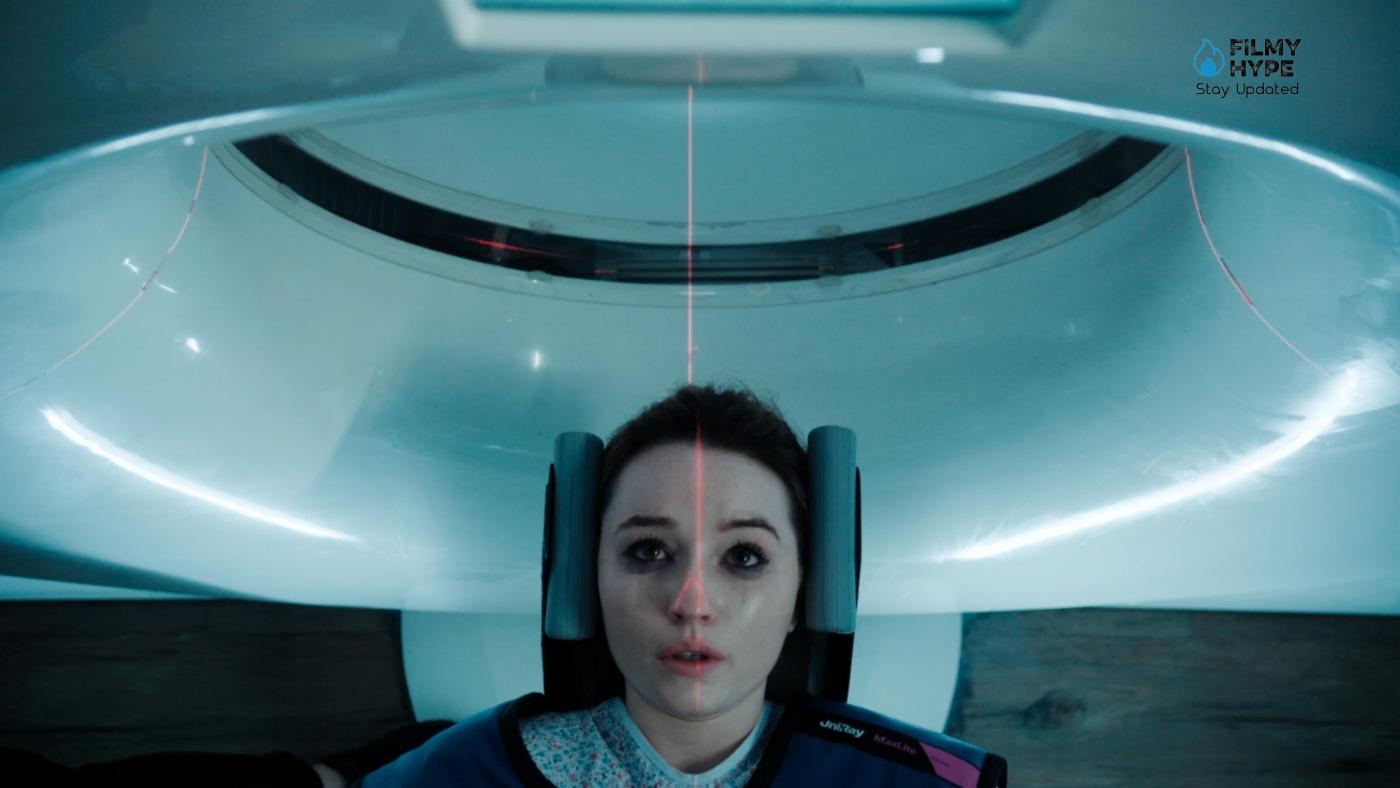
The reasons why you should see this series are manifold, but let’s start with the first one. Apple Cider Vinegar is a story of impressive topicality despite being set more than twenty years ago. You will be amazed to see how immune we believe we have become to the psychological power of social media and influencers when, in reality, we are more subjugated than ever. But in addition to the reflection on the psychological manipulation of social networks and the talk more related to medicine on alternative treatments of serious diseases such as cancer, the beauty of Apple Cider Vinegar lies in the way in which the story is told and in a cast that knows how to do the difference. With a brilliant and original script and a direction that always knows how to amaze and charm the viewer, this series captures the heart and mind as few Netflix titles can.
With a witty and effective story structure that reveals personality and stories gradually, equipped with very interesting fourth wall breaks and excellent performances by its protagonists, primarily by Kaitlyn Dever (The Last of Us) who brilliantly dresses the role of Belle Gibson, this series manages to enter under the skin only after the first episode becoming more a necessity than a moment of leisure. Apple Cider Vinegar is a powerful, bold, reckless title that will make a lot of talk about itself. And not only does he manage to entertain but he becomes educational for an audience of any age. Do not be frightened by the fact that this series deals with delicate and sad themes such as illness because it does so in a tone so bright as to make the vision intense but at the same time rhythmic and light. Netflix, with the series on the true story of Belle Gibson, makes us open our eyes to many themes of our contemporaneity and reminds us in the form of a TV series which, at times, is better to turn off the mobile phone and watch who and what we have before our eyes which is much more real than a story or a post on Instagram.
Visually, Apple Cider Vinegar uses an aesthetic that directly recalls the world of social media: screens full of comments, notifications, likes, glossy shots, and a pop soundtrack that includes songs like Britney Spears’ Toxic. If on the one hand, this style contributes to recreating the context of the time, on the other it creates a striking contrast with the central theme of the series: cancer. This duality is at the same time a courageous choice and a double-edged sword since it risks representing in an exaggeratedly superficial way a topic of great delicacy. A distinctive element of the series is its willingness to reflect on the genre “true crime” and on how the stories of scammers are told. From the first episode, the characters break the fourth wall to remind viewers that it is “a true story based on a lie”. But does Apple Cider Vinegar manage to denounce these phenomena, or does it end up glamorizing the figure of the scammer? The answer is not so simple: if on the one hand, the series does not try to justify Belle, on the other it uses narrative gimmicks typical of success stories, making its path almost fascinating.
We had the same question after Investing Anna’s vision, another serial story about a famous scammer, and even the answer was the same: social criticism at times falters, but remains quite effective. Having said that, then, both the story of Anna Delvey and that of Belle Gibson are material for shows of great entertainment, which will keep the viewer glued to the screen from the first to the last episodes. Those who know the story of Belle Gibson already know how it ends: her lies are exposed and the scammer is sentenced to pay almost half a million dollars, a figure she has never returned. But the real message of Apple Cider Vinegar is not only the fall of Belle, but the analysis of an industry – that of “wellness” and social media – which continues to thrive thanks to disinformation. Today Belle’s story remains more current than ever.
Apple Cider Vinegar Series Review: The Last Words
Apple Cider Vinegar is a miniseries that tells the incredible rise and fall of Belle Gibson, an Australian influencer who pretended to have cancer to build an empire in the world of well-being. With a fragmented narration and an aesthetic inspired by Instagram, the series explores the dark side of wellness and influencer marketing. Kaitlyn Dever’s performance is the beating heart of the show, but the series does not always manage to balance entertainment with social reporting. Apple Cider Vinegar is a distillate of many genres – drama, comedy, crime, true story – and of many tones and visual and narrative registers – in terms of colors, music, and direction – mixed and alternated together deliberately not always fluid and homogeneous. The target? Starting from Kaitlyn Dever’s crazy performance creates that sense of unease in the viewer so that he asks the right questions and always questions what he hears and sees from the media today. A warning on what a person should never do and above all on how much people should never rely so totally on a single perfect stranger. Cancer is serious, just like this story.
Cast: Kaitlyn Dever, Alycia Debnam-Carey, Tilda Cobham-Hervey, Aisha Dee, Jack Colgrave Hirst, Geraldine James
Created By: Janine Nabers, Laura Gibson
Streaming Platform: Netflix
Filmyhype.com Ratings: 4/5 (four stars)


